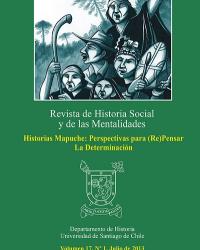INDIGENOUS POLICIES, MULTICULTURALISM AND ‘URBAN INDIGENOUS STATE APPROACH’
DOI:
https://doi.org/10.35588/yppk1515Keywords:
Indigenous policies, Urban indigenous state approach, Multiculturalism, ColonialismAbstract
Interest in urban reality of indigenous people –particularly in Mapuche society and its great population living in Santiago-can be understood as a recent change over the indigenous policies in Chile, that is to say, as part of the transformation in speeches and practices after the dictatorship and also as part of what we might call the generation of a ‘state indigenous engineering’. That engineering in the beginning had a strong emphasis on rural aspects and strategies, but nowadays the emphasis is upon new trials along indigenous state agencies, new windings and new strategies where the visibility of urban settlement (Census 1992, Census 2002, Casen 2006, Casen 2009) has been a key on ownership of the problem and the springing up of specific plans and programs for the sector. In this article we propose a brief overview of indigenous policies, and then we will deploy a critical analysis of multiculturalism in Chile within Latin American reality. Starting from the previously mentioned, we will also discuss some proposals to indigenous residents of cities, summed up in what we call ‘urban indigenous state approach’.













